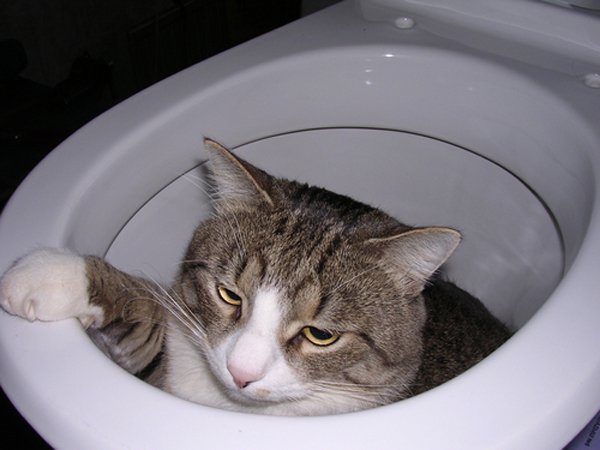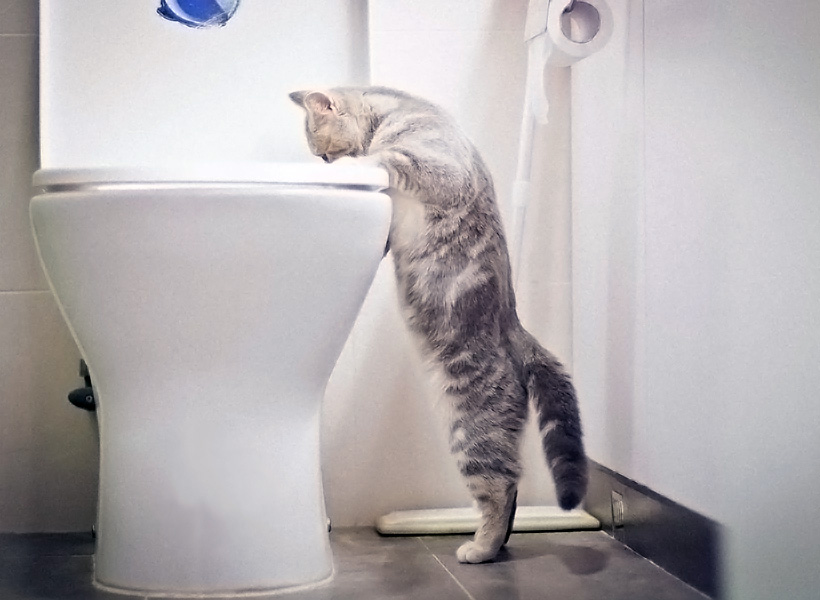Avoid Toilet Disasters: Don't Flush Cat Poop Down Your Toilet - Professional Advice
Avoid Toilet Disasters: Don't Flush Cat Poop Down Your Toilet - Professional Advice
Blog Article
Just about everyone is bound to have their own opinions involving Can You Flush Cat Poop Down The Toilet?.

Intro
As pet cat owners, it's vital to bear in mind just how we take care of our feline close friends' waste. While it may seem practical to flush pet cat poop down the toilet, this practice can have detrimental consequences for both the environment and human health.
Ecological Impact
Purging pet cat poop introduces damaging microorganisms and bloodsuckers into the water supply, posing a significant risk to aquatic ecosystems. These contaminants can negatively affect marine life and concession water quality.
Health and wellness Risks
Along with ecological worries, purging feline waste can likewise position health and wellness risks to humans. Feline feces might include Toxoplasma gondii, a parasite that can cause toxoplasmosis-- a possibly extreme ailment, particularly for pregnant females and people with damaged body immune systems.
Alternatives to Flushing
Luckily, there are much safer and much more responsible means to get rid of feline poop. Consider the adhering to options:
1. Scoop and Dispose in Trash
The most common approach of taking care of feline poop is to scoop it into a biodegradable bag and toss it in the trash. Be sure to utilize a dedicated trash scoop and dispose of the waste immediately.
2. Use Biodegradable Litter
Opt for naturally degradable feline litter made from products such as corn or wheat. These trashes are environmentally friendly and can be securely thrown away in the trash.
3. Bury in the Yard
If you have a backyard, take into consideration burying pet cat waste in an assigned location away from veggie gardens and water resources. Make certain to dig deep sufficient to stop contamination of groundwater.
4. Install a Pet Waste Disposal System
Buy a family pet garbage disposal system specifically made for cat waste. These systems utilize enzymes to break down the waste, reducing smell and environmental effect.
Conclusion
Responsible pet possession extends past giving food and shelter-- it additionally entails appropriate waste monitoring. By refraining from flushing feline poop down the toilet and selecting different disposal methods, we can lessen our environmental footprint and shield human health.
Why You Should Never Flush Cat Poop Down the Toilet
A rose by any other name might smell as sweet, but not all poop is created equal. Toilets, and our sewage systems, are designed for human excrement, not animal waste. It might seem like it couldn’t hurt to toss cat feces into the loo, but it’s not a good idea to flush cat poop in the toilet.
First and foremost, assuming your cat uses a litter box, any waste is going to have litter on it. And even the smallest amount of litter can wreak havoc on plumbing.
Over time, small amounts build up, filling up your septic system. Most litter sold today is clumping; it is made from a type of clay that hardens when it gets wet. Ever tried to scrape old clumps from the bottom of a litter box? You know just how cement-hard it can get!
Now imagine just a small clump of that stuck in your pipes. A simple de-clogger like Drano isn’t going to cut it. And that means it’s going to cost you big time to fix it.
Parasitic Contamination
Believe it or not, your healthy kitty may be harboring a nasty parasite. Only cats excrete Toxoplasma in their feces. Yet it rarely causes serious health issues in the cats that are infected. Most people will be fine too if infected. Only pregnant women and people with compromised immune systems are at risk. (If you’ve ever heard how women who are expecting are excused from litter cleaning duty, Toxoplasma is why.)
But other animals may have a problem if infected with the parasite. And human water treatment systems aren’t designed to handle it. As a result, the systems don’t remove the parasite before discharging wastewater into local waterways. Fish, shellfish, and other marine life — otters in particular — are susceptible to toxoplasma. If exposed, most will end up with brain damage and many will die.
Depending on the species of fish, they may end up on someone’s fish hook and, ultimately on someone’s dinner plate. If that someone has a chronic illness, they’re at risk.
Skip the Toilet Training
We know there are folks out there who like to toilet train their cats. And we give them props, it takes a lot of work. But thanks to the toxoplasma, it’s not a good idea.

We were made aware of that report on How to Dispose of Cat Poop and Litter Without Plastic Bags from a friend on another blog. Sharing is caring. Helping people is fun. Thanks a bunch for your time. Come back soon.
Call Today Report this page